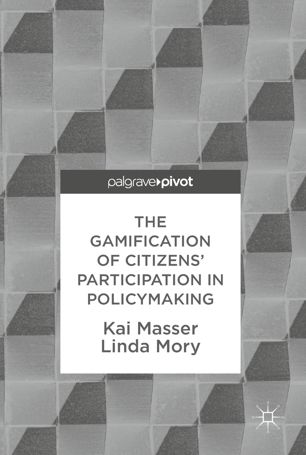

Most ebook files are in PDF format, so you can easily read them using various software such as Foxit Reader or directly on the Google Chrome browser.
Some ebook files are released by publishers in other formats such as .awz, .mobi, .epub, .fb2, etc. You may need to install specific software to read these formats on mobile/PC, such as Calibre.
Please read the tutorial at this link: https://ebookbell.com/faq
We offer FREE conversion to the popular formats you request; however, this may take some time. Therefore, right after payment, please email us, and we will try to provide the service as quickly as possible.
For some exceptional file formats or broken links (if any), please refrain from opening any disputes. Instead, email us first, and we will try to assist within a maximum of 6 hours.
EbookBell Team

4.7
76 reviewsThis book examines the use of game elements to encourage citizens to participate in political decision-making and the planning of large-scale public sector projects. It argues that success is based on a personal concern with the project and a belief in the influence on political decision making, but also on fun. Without fun, only a very small group of the ‘usual suspects’ will participate, especially in classic policymaking approaches like citizens’ panels which require time and physical attendance. The book also examines the relationship between representative democracy and citizen participation from the perspective of direct democratic instruments in Germany. Readers from different countries with different political systems can decide for themselves, if and how the results from Germany are transferable to their respective conditions. Grounded in theoretical literature and statistical data, the book also makes use of narratives, applying a ‘storytelling’ approach to the case studies.